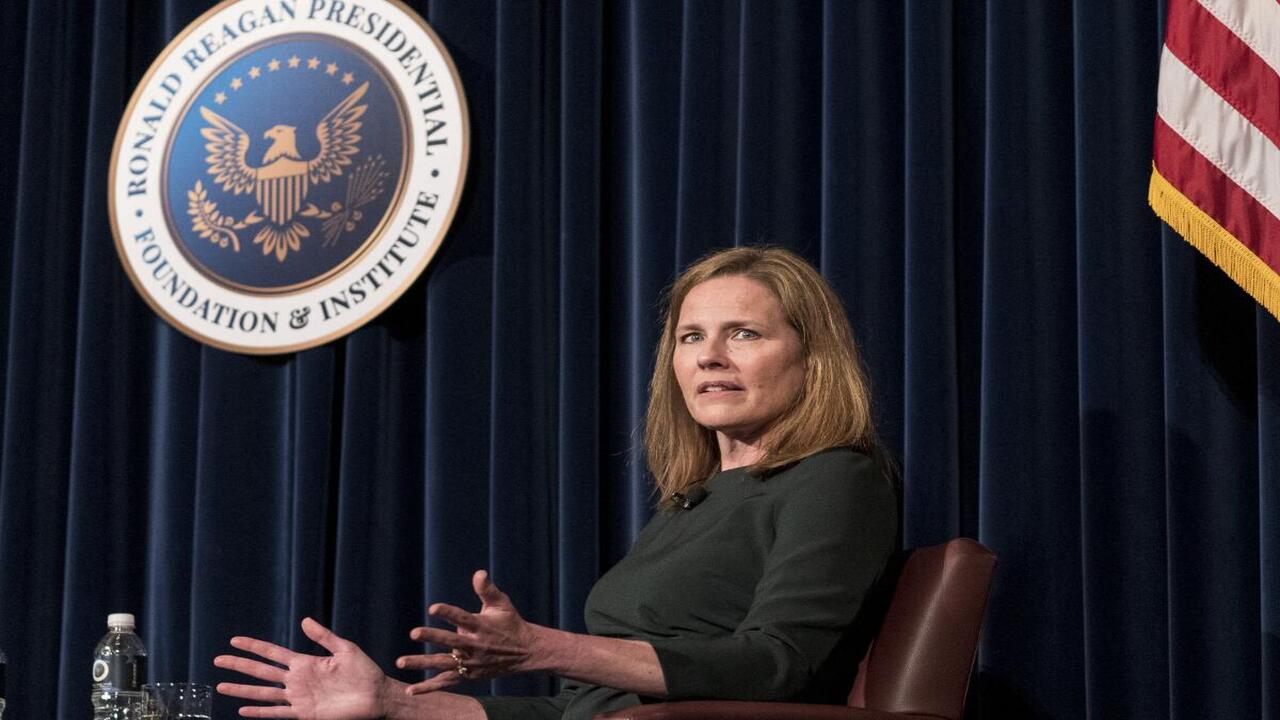
IndependentReport – U.S. Supreme Court Justice Amy Coney Barrett stated firmly that the country is not in the midst of a constitutional crisis, despite widespread concerns over President Donald Trump’s sweeping executive actions. Speaking at the launch of her book Listening to the Law at Lincoln Center in New York in early September 2025, Barrett sought to ease fears that the American system of governance was unraveling.
According to Barrett, a true constitutional crisis would only occur if the rule of law collapsed and courts ceased to function as independent arbiters. While acknowledging the heated disputes sparked by Trump’s policies on immigration, education, and trade many of which have ended up in court she argued that the judicial system continues to operate effectively within the constitutional framework. For Barrett, the current environment is better described as “a period of sharp disagreement” rather than an outright breakdown.
Barrett’s perspective cannot be separated from her background. Appointed by President Trump in 2020, she cemented a conservative 6-3 majority on the Court, a shift that has profoundly reshaped U.S. law in just a few years. Her confirmation at the time was already controversial, coming weeks before the presidential election, but it established her as a key figure in the Court’s conservative bloc.
Since then, the Supreme Court Barrett has handed down several landmark rulings: overturning Roe v. Wade and eliminating the constitutional right to abortion, expanding gun ownership rights, and strengthening religious freedom. Critics argue these decisions have pulled the Court sharply to the right, but Barrett defends them as the product of principled legal interpretation. She has repeatedly said that public opinion, however loud or emotional, should not dictate judicial outcomes.
Also Read : China Military Parade: Trump Criticizes Xi Jinping for Skipping US in Anniversary Speech
Despite Barrett’s assurances, many scholars and legal observers remain uneasy about the Court’s trajectory. A major point of contention is its increasing reliance on the so-called shadow docket emergency orders issued without full hearings or written opinions. While efficient, this practice has been criticize for eroding transparency and accountability in cases of enormous national significance.
There are also concerns about the growing influence of politics on judicial independence. Leaked documents earlier this year revealed unease among federal judges over the Trump administration’s tendency to sidestep or downplay court rulings. Although Chief Justice John Roberts has publicly dismiss the notion of a constitutional crisis, the revelations raised questions about whether the balance of power between branches of government is being respected.
Several recurring criticisms help explain why many Americans remain skeptical of the Supreme Court’s independence and role:
This list underscores that the debate over the Supreme Court extends far beyond legal technicalities it touches on legitimacy, democracy, and the balance of power itself.
Read More : CyDay Friday Tailgate Party: Celebrating Community Spirit in Muscatine
Barrett’s claim that the United States is not experiencing a constitutional crisis offers reassurance, but it also reveals her narrower definition of such a crisis. By emphasizing the ongoing functionality of the courts, she highlights resilience but in doing so, she risks overlooking subtler but significant threats to democratic norms.
The future of American democracy will hinge not only on the survival of constitutional structures but also on whether the public believes those structures are fair and impartial. If the perception grows that the Supreme Court Barrett is acting as a political instrument rather than an independent judiciary, the damage could be long-lasting, even if the formal system remains intact.
Ultimately, Barrett’s words point to a paradox. Legally, the framework of checks and balances endures. Politically, however, the trust that sustains that framework may be eroding. This tension ensures that the question of whether America is heading toward or already in a constitutional crisis will remain a matter of fierce debate in the years ahead.